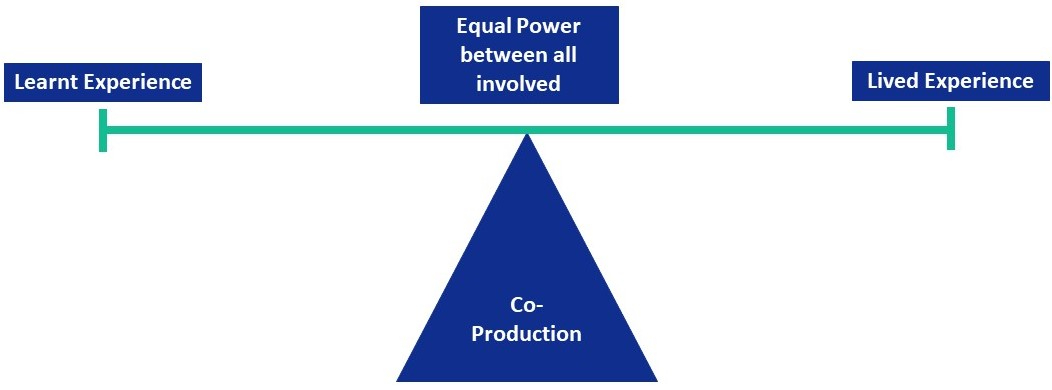What is co-production?
You’ll encounter many definitions to co-production across organisations and groups, here at Community Roots we tend to use:
"Co-production as an equal partnership where experts by profession and experts by experience work together from start to finish. It begins with the view that no one group, or person is more important than any other and highlights the importance of equality and individual differences."
We believe every individual involved in coproduction brings important insight to the process of co-production.
Your contribution may be your personal experiences, knowledge and skills as an expert by experience, or as a professional by experience. We also work alongside people with facilitation skills, or perhaps time to commit through volunteering or involvement in a project.
We work inclusively, seeking out experts and engaging with teams internally and externally to the Trust. Representation across our communities is welcomed, especially from BAME and underrepresented groups who may feel seldom heard and understood by health services

Co-production is a core component of Community Roots and allows us to develop sessions and resources alongside a wide range of people.
We value the principles of working side-by-side with lived experience and professional experience experts to co-create wellbeing sessions and workshops. Together we develop opportunities that focus on improving quality of life across ReQol's five areas of wellbeing:
- Activity
- Belonging
- Wellbeing
- Hope
- Self-perception
Working collaboratively enables us to tailor to the needs of the communities that we work alongside, whilst promoting wellbeing, hope and opportunity.

There are many benefits to co-production, some include increased confidence and self-esteem, a sense of empowerment and social connectedness and an improved overall outcome of a project therefore leading to better services.
When done well, co-production can help to ground discussions into reality and maintain a person-centered perspective.
Session Dates:
Co-Production Lab - November 7 1.30pm/3.30pm
Co-Production Lab - November 21 1.30pm/3.30pm
Co-Production Lab - December 5 1.30pm/3.30pm

